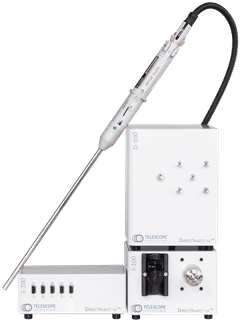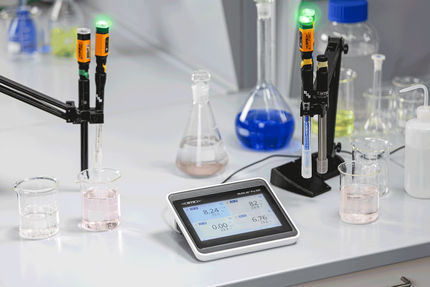To use all functions of this page, please activate cookies in your browser.
my.chemeurope.com
With an accout for my.chemeurope.com you can always see everything at a glance – and you can configure your own website and individual newsletter.
- My watch list
- My saved searches
- My saved topics
- My newsletter
Zeta potential titration
Product highlight
References
CategoryCategories: Chemical mixtures | Colloidal chemistry | Condensed matter physics | Soft matter |
| This article is licensed under the GNU Free Documentation License. It uses material from the Wikipedia article "Zeta_potential_titration". A list of authors is available in Wikipedia. |







